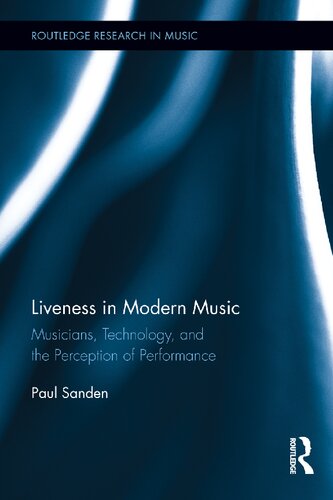

Most ebook files are in PDF format, so you can easily read them using various software such as Foxit Reader or directly on the Google Chrome browser.
Some ebook files are released by publishers in other formats such as .awz, .mobi, .epub, .fb2, etc. You may need to install specific software to read these formats on mobile/PC, such as Calibre.
Please read the tutorial at this link: https://ebookbell.com/faq
We offer FREE conversion to the popular formats you request; however, this may take some time. Therefore, right after payment, please email us, and we will try to provide the service as quickly as possible.
For some exceptional file formats or broken links (if any), please refrain from opening any disputes. Instead, email us first, and we will try to assist within a maximum of 6 hours.
EbookBell Team

4.4
72 reviewsThis study investigates the idea and practice of liveness in modern music. Understanding what makes music live in an ever-changing musical and technological terrain is one of the more complex and timely challenges facing scholars of current music, where liveness is typically understood to represent performance and to stand in opposition to recording, amplification, and other methods of electronically mediating music. The book argues that liveness itself emerges from dynamic tensions inherent in mediated musical contexts―tensions between music as an acoustic human utterance, and musical sound as something produced or altered by machines. Sanden analyzes liveness in mediatized music (music for which electronic mediation plays an intrinsically defining role), exploring the role this concept plays in defining musical meaning. In discussions of music from both popular and classical traditions, Sanden demonstrates how liveness is performed by acts of human expression in productive tension with the electronic machines involved in making this music, whether on stage or on recording. Liveness is not a fixed ontological state that exists in the absence of electronic mediation, but rather a dynamically performed assertion of human presence within a technological network of communication. This book provides new insights into how the ideas of performance and liveness continue to permeate the perception and reception of even highly mediatized music within a society so deeply invested, on every level, with the use of electronic technologies.